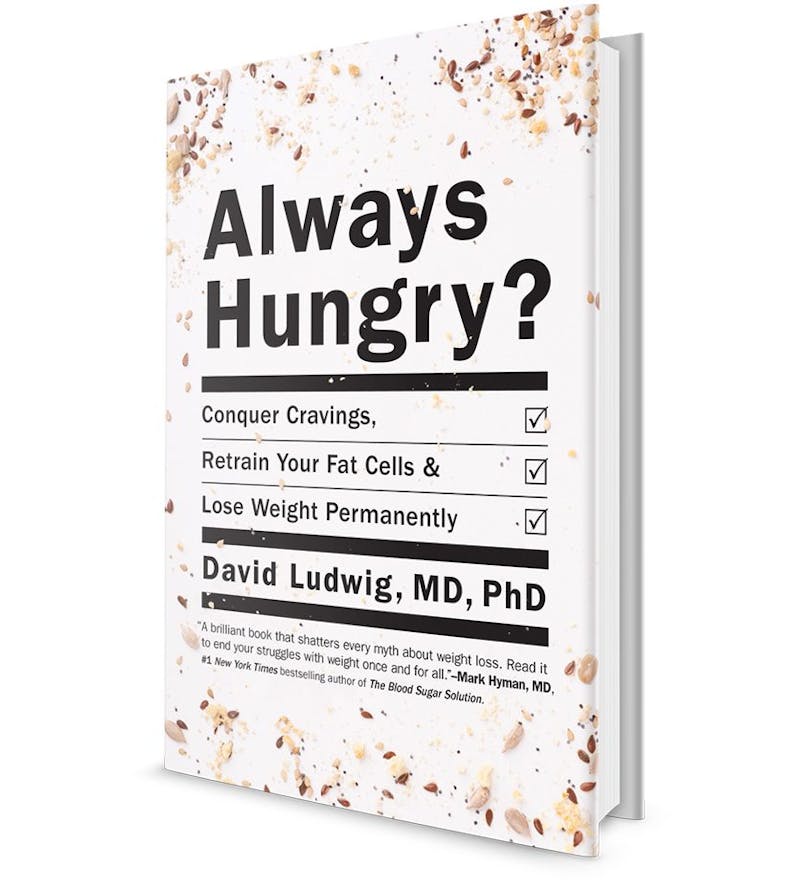Always hungry? Here’s the book for you

An interesting new diet book is released today. It’s Always Hungry? Conquer Cravings, Retrain Your Fat Cells & Lose Weight Permanently by Harvard Professor Dr. David Ludwig.
Dr. Ludwig has been one of the most influential low-carb researchers for a long time. Among other famous studies he’s shown that people on low-carb diets may burn on average 325 more calories per day.
In this book (which I was sent a pre-release copy of) Dr. Ludwig summarizes the science and comes to a smart conclusion: To lose weight long-term, we should not restrict calories and suffer. We should eat food that makes us want to eat less. We should eat foods that reduce the “fat cell fertilizer”, the hormone insulin. This means fewer carbs, especially fewer bad carbs like sugar and flour.
None of this may be news to readers of this blog, but I still found this part of the book easily worth reading – it’s well written and details several really interesting studies. Especially when it comes to the effect of just eating slower carbs.
While most of the ideas may be well known in low-carb circles, I’m sure this book will convert many new people.
The diet part
The largest part of the book is a really detailed diet guide. It should work well for most people, even though I don’t entirely agree with Dr. Ludwigs approach. Let’s just say he’s much more moderate than me.
While Dr. Ludwig acknowledges that a very low-carb diet may be even more effective for weight loss, he thinks a more moderate version is easier to do, and effective enough. It’s the “tortoise” to the strict low-carb “hare” (Dr. Ludwig actually uses those words).
Thus his diet recommendation is to start out with 25% carbs, increasing it to 40% after two weeks. He also recommends 3 meals a day + 2 snacks. Obviously the carbs are mostly low-GI, unrefined carbs.
While this may work fine for many people, I feel going lower in carbs and removing the snacks (no need to snack on a true low-carb diet) would have made it significantly more effective. But of course, also more restrictive.
Summary
If moderation is your thing, or if you want a great insider explanation of the science, here’s the low-carb diet book for you:
More
Dr. Micheal Eades has written a much longer and glowing review of the book today: Always Hungry
How to Lose 240 Pounds Without Hunger